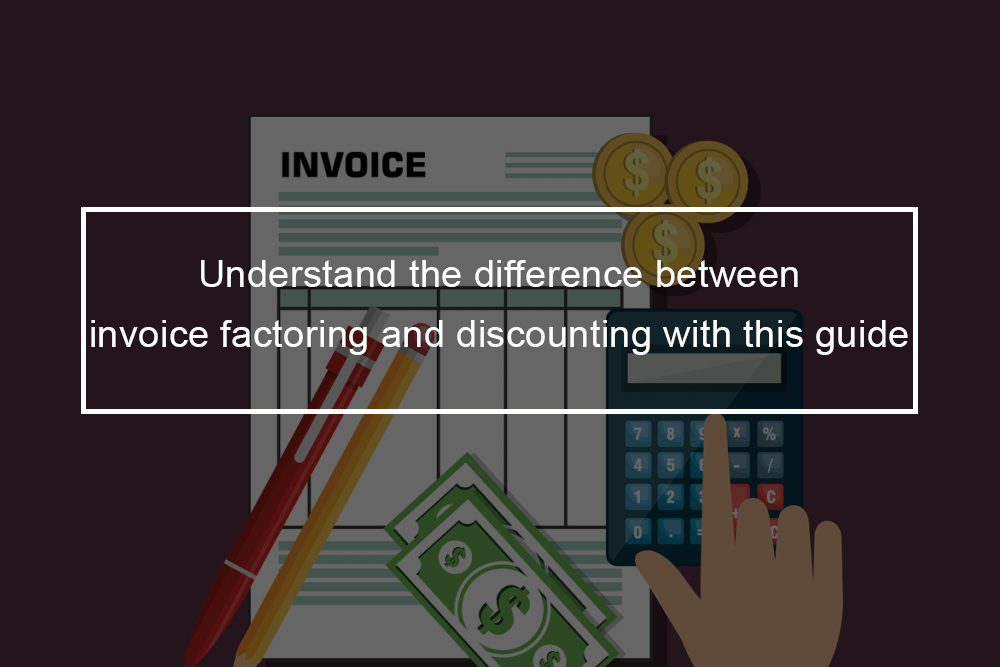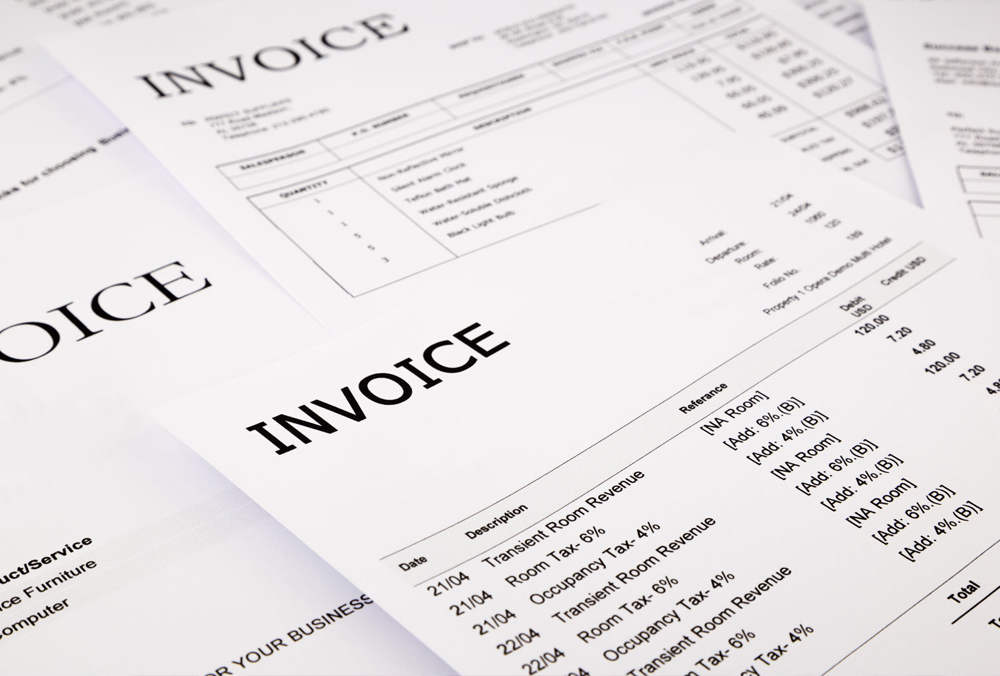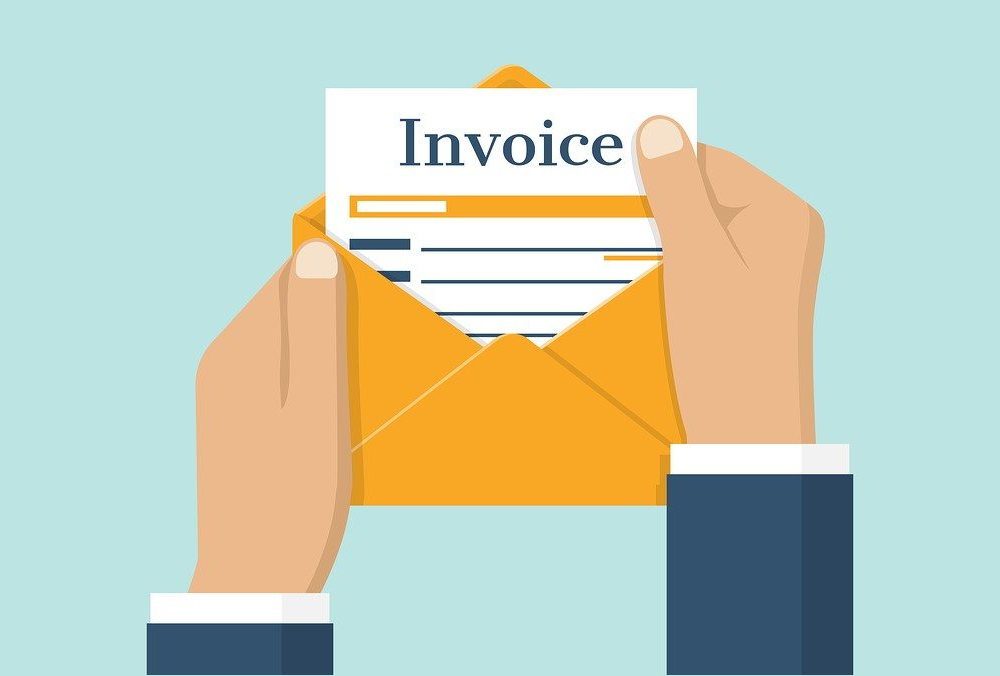In this article, we will help you figure out the key differences between invoice discounting and invoice factoring. The goal here is to help you find the most suitable short term finance solution for your business.
What is Invoice Factoring?
Invoice factoring is a kind of short-term accounts receivable financing, where a business owner effectively ‘sells’ unpaid invoices to a third-party commercial finance company. Usually, there is a gap between when you complete a job and send an invoice, and when the customer returns payment, and this is where invoice factoring can add value.
The terms of invoice factoring deals are different in many cases; however, most factors advance businesses between sixty and eighty percent of the invoices’ value. You get your money, and the factor takes on the responsibility for obtaining payment from those clients, processing invoice payments and managing the business’s credit-control. This indicates that your clients will be aware of your relationship with the factoring company. In simple words, they will know that you are using invoice factoring as a short-term financing method.
What is invoice discounting?
Similar to business invoice factoring, invoice discounting is a kind of short-term borrowing against your unpaid invoices. It is usually utilized to help improve a company’s cash flow position and working capital. With invoice discounting, the business owner maintains the responsibility of the payment chasing, invoice processing, and sales ledger. As a result, your clients are unlikely to be aware of your relationship with the lender.
The similarities: General process and time frame
Both invoices discounting and invoice factoring are invoice-based financing solutions.
They look a lot alike, mainly in the following ways:
- Time and amount of money: Both factoring and invoice discounting release somewhere between 70-percent and 90-ninety of the value of a pending invoice within 24–48 hours. Typically, this is in contrast to the thirty to sixty days it takes for clients to pay invoices.
- Reward Good Customer Relationships: Business owners receive better rates when their clients pay invoices on time. So, both financing options reward taking time to develop relationships.
- Financial Considerations: Neither needs company credit checks or provable assets. They are only concerned with the reliability and credit rating of the company that owes the invoice.
What are the differences between invoice discounting VS factoring?
Invoice factoring and invoice discounting both involve borrowing against your debt. Nonetheless, there are some big differences in how they work:
Control and visibility
- With invoice factoring, the finance company takes over your sales ledger’s credit control process and management. They also actively chase client payments on your behalf, indicating you can do away with the cost and time of credit checking your clients, which is mainly important if credit control has been poor in the past.
- When it comes to invoice discounting, you get to collect payments yourself and manage your own sales ledger. Since you retain control of the process, your clients should be unaware of the invoice discounting agreement.
Funds available and adjustments to advances
- With invoice factoring, you are given advance money for individual invoices. Any adjustments to the funds you get are made daily.
- With Invoice discounting, an invoice discounter doesn’t manage your sales ledger. Usually, you will have to offer a monthly reconciliation of the account that depicts any modifications in the debt level to be disallowed. Typically, the finance provider can then make adjustments to the money that is available to you. So, instead of small daily adjustments, invoice discounting can result in larger adjustments. These can be more challenging to deal with.
Risks of invoice discounting vs. invoice factoring
- InvoicefFactoring is less risky for the lender since the factoring company manages the collection process and credit control. Acceptance is virtually assured. This is why invoice factoring is a common form of finance for threatened or hard-up companies with insolvency.
- On the other hand, invoice discounting is riskier for the lender since there is no direct contact with your customers. They do not have control. Thus, discounters generally only lend to businesses with a positive net worth on their balance sheets to lower the risks. Some invoice finance companies might focus on larger turnover and even the debtor book’s quality to lessen the risks. With this increased security, businesses generally get better rates and advances, and you can worry less about debentures, personal guarantees, or contractual ties.
Pros and cons of invoice discounting vs. invoice factoring
Both of these financing solutions mean a fast boost to your cash flow. Thanks to the differences between the two options, though, there are distinct pros and cons associated with each.
Invoice factoring pros
- The factoring company will chase payments, manage the credit-control process, look after your sales ledger, freeing up your cost and time to manage the company.
- Excellent credit checking processes indicates you are more likely to trade with clients that pay on time.
- Working with a factoring company can sometimes assist you in negotiating better terms with your suppliers.
Invoice factoring disadvantages
- Your clients and customers might prefer to deal with you directly.
- The presence of a factoring company might affect the impression the customer has of your company, especially if they are dealt with badly by the factoring company. You may even lose the customers.
- The extra services provided by a factoring company do come at a cost. For instance, the management fees for invoice discounters are generally between 0.2 and 0.5 percent of turnover. A factoring company can ask for anything from 0.75 to 2.5 percent of turnover.
Invoice discounting pros
- Unlike invoice factoring, invoice discounting can be arranged confidentially, so your clients will have no idea you are borrowing money against their invoices.
- Invoice discounting is less expensive compared to factoring
- You keep managing debt collection for client accounts and your own credit control, assisting you in building and maintaining closer relationships with your clients.
- There is likely to be less risk to the director with the more modern providers.
Invoice discounting cons
- You will require an established and strong credit collection process in-house to be approved by an invoice discounting lender.
- Typically, invoice discounters only tend to work with companies with a high turnover and a positive net worth on their balance sheets.
- Some companies end up depending on invoice discounting as a source of money and cannot leave the arrangement without a negative effect on their sales and operations.
Which Industries favor invoice discounting and invoice factoring?
Any business which invoices from thirty to ninety days would be a typical candidate for accounts receivable financing. Equitably, a business with a smaller number of customers owing a higher value of invoice indicates a particular cash-flow vulnerability to late payments.
Specific industries tend to use invoice finance more than others, including:
- Wholesale
- Transport
- Security
- Recruitment
- Printing
- Logistics
- Manufacturing
- Construction
How should you make a decision?
If your business fits the right category as discussed above, and so do your customers, the next set of questions to ask yourself include:
- Is your company experiencing cash flow issues?
- Would your company benefit a lot from being able to reinvest capital one to two months ahead of schedule? In simple words, are you aiming for faster growth and inclined to use invoice discounting or factoring to reinvest instantly?
- Does your business require greater flexibility? Sometimes a new business opportunity might appear when you are not ready to invest the money needed to make excessive use of it. Invoice factoring and invoice discounting can help you have more flexibility.
As long as you think your business could benefit from using factoring or invoice discounting, the next piece of the puzzle is identifying the appropriate financing company.
Which is right for you: Invoice factoring or discounting
Which is the better accounts receivable financing solution, invoice discounting or factoring? It is all dependent on the nature of your business, and mainly the business needs. Your business’s ability to effectively manage your sales ledgers and its size are also key considerations. If you have a smaller company with issues with collecting payments in the past and credit control, invoice factoring is likely a better solution. Generally speaking, invoice factoring can be a more solid option for these companies as a result of the increased credit control the service offers. Nonetheless, it will take a slightly bigger bite out of your revenue margins, and your provider might insist on credit insurance (for insuring against bad debt). Typically, invoice discounting is more common among larger companies with lots of resources though this is changing as the model develops. These companies already have proven and established credit control processes. Moreover, invoice discounting is a better solution if you want to protect key customer relationships. Do not forget to find a financing partner you can trust to help you with accounts receivable matters. Ensure you look for recommendations, case studies, and other signs that you are working with a verified, secure company.














